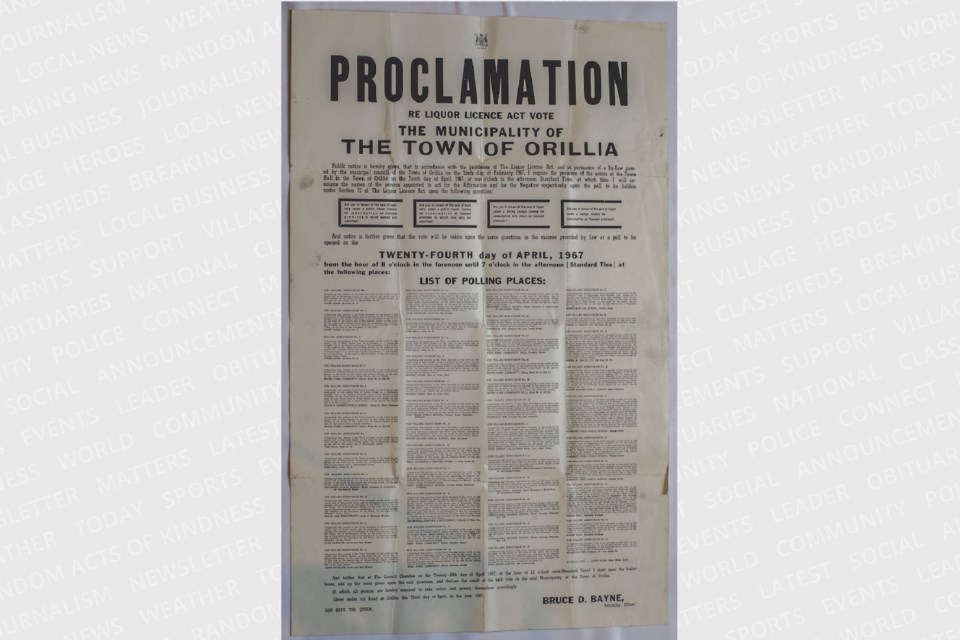The following was originally written by David Town, local historian and author of Booze! Orillia’s Struggle with Drunkenness.
In 1908, a binding referendum outlawed the sale of all alcohol in Orillia.
It was the culmination of a 50-year campaign to “civilize” the town and reduce the violence, crime and domestic hardship that followed drunkenness. For the next 50 years, a person had to trek out over the Narrows bridge to the Atherley Tavern to get a shot of whiskey.
The Ontario government outlawed alcohol for more than 10 years, from 1916 to 1927, originally as a wartime measure, and Canada followed suit, outlawing alcohol throughout 1918 and 1919. But moralistic Orillia banned it from 1908 all the way to 1961. A vote in Orillia under the Canada Temperance Act finally brought back beer and liquor stores in 1961, but not public drinking establishments.
A fierce debate erupted with the announcement of this referendum. A group of eight restaurateurs and hotel owners hired a professional campaign manager who had successfully run efforts to legalize booze in 12 other towns already. They raised $10,000 to advertise (but carefully stated they took no money from breweries or liquor companies). They were the Wets, looking to bring back alcohol to bars. On the other side, the Drys were several hastily organized groups including the Concerned Orillia Businessman Association, the Vote for Orillia group and the Concerned Parents Movement.
Flyers and posters went out on both sides, speeches were made, ministers recruited from the pulpits, full-page ads appeared in the paper, and dozens of letters to the editor fanned the flames of emotion. The Wets argued economics: The tourism industry needed bars to attract customers away from other wet towns. The Drys argued from a moral perspective, about the brawling and crime that drunkenness encouraged.
The vote on the four questions shown on the poster resulted in two yes votes and two no votes. Liquor sold at dining lounges and liquor lounges was approved by a two-to-one margin. Beer rooms could only muster barely 50 per cent support (60 per cent was needed to change the law).
Vote over, the well-to-do tourists could now enjoy a cocktail in their hotel’s lounge, and diners could have wine with dinner in restaurants, but the blue-collar working men of Orillia still had to trudge out to ‘The First’ in Atherley to have a beer with the boys.



